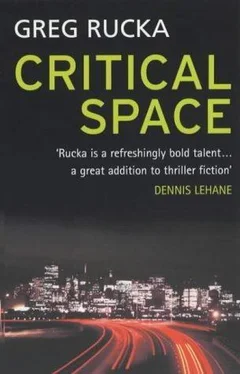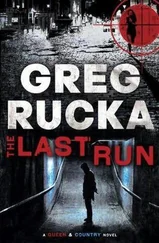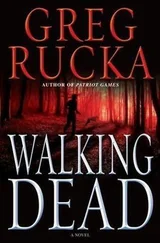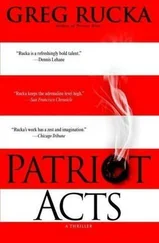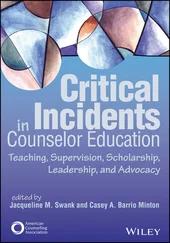Greg Rucka - Critical Space
Здесь есть возможность читать онлайн «Greg Rucka - Critical Space» весь текст электронной книги совершенно бесплатно (целиком полную версию без сокращений). В некоторых случаях можно слушать аудио, скачать через торрент в формате fb2 и присутствует краткое содержание. Жанр: Триллер, на английском языке. Описание произведения, (предисловие) а так же отзывы посетителей доступны на портале библиотеки ЛибКат.
- Название:Critical Space
- Автор:
- Жанр:
- Год:неизвестен
- ISBN:нет данных
- Рейтинг книги:4 / 5. Голосов: 1
-
Избранное:Добавить в избранное
- Отзывы:
-
Ваша оценка:
- 80
- 1
- 2
- 3
- 4
- 5
Critical Space: краткое содержание, описание и аннотация
Предлагаем к чтению аннотацию, описание, краткое содержание или предисловие (зависит от того, что написал сам автор книги «Critical Space»). Если вы не нашли необходимую информацию о книге — напишите в комментариях, мы постараемся отыскать её.
Critical Space — читать онлайн бесплатно полную книгу (весь текст) целиком
Ниже представлен текст книги, разбитый по страницам. Система сохранения места последней прочитанной страницы, позволяет с удобством читать онлайн бесплатно книгу «Critical Space», без необходимости каждый раз заново искать на чём Вы остановились. Поставьте закладку, и сможете в любой момент перейти на страницу, на которой закончили чтение.
Интервал:
Закладка:
The next day, two men in uniforms came and took her from the cell. They put her in another room, where they asked her different questions than before. She knew they were Government, and that they were powerful, because the police in the station were afraid of them, and because of the long night and all that had happened, this time she did talk. The two men gave her papers with problems on them for her to solve, showed her photographs and asked what she thought of them. One told her a story and then, an hour later, asked her to write down everything she could remember of the tale.
Then they gave her a lunch of black bread and dried fish and water, and when she had finished, they called a doctor in to examine her, but she fought with them when they tried to undress her for the physical exam. In the end, two of them had to hold her down.
Then they put her back in a cell, but this time a different one, where she was alone. No one came to see her. No one spoke to her. She spent a second night listening to adults crying and yelling in cells all around her, and she cried a lot, too. It was the last time, she said, that she could remember crying.
At dawn the third day, one of the Government men returned, and she was released into his custody, given new clothes and a small breakfast, and then taken away, to a school in the northern Caucasus, in Vladikavkaz, then called Ordzhonikidze, a thousand and a half miles from Magadan. The school was dedicated to the education of the children of high-ranking military officers. There were strict rules, and the students all wore black uniforms with scarlet stripes as trimming.
She was there less than a month when the man from the Government returned, this time with others, and they asked her more questions, gave her more tests. These tests were more extensive, and lasted several days. She was given another physical exam, and this time she did not fight.
Five or six days after the last test had been given and the last Government man had left, she was moved to another school. This one was on a military base outside the city of Omsk, which, like Magadan, was closed.
"That was where they trained me," she said.
The day she arrived, an administrative officer recorded all of her data carefully, her height, her weight, her hair and eye color. The distinguishing marks on her body. He had pictures taken of her teeth and fingerprints lifted from her hands. On the sheet, she saw that he left her name blank.
She was surprised when she saw that the officer recorded her age as nine years old.
Her instruction was handled by the GRU, the intelligence arm of the Soviet Army, and subtlety was not their strong suit. She was made first, as she put it, into a "blunt instrument."
"Starting with physical conditioning," she said. "Then beginning tradecraft, languages. Then advanced techniques, escape-and-evasion, construction of trade devices, electronics, IEDs, so on."
She told me she could speak Russian, English, French, and German, all fluently. When she really wanted, her English could sound almost native, and her French perfectly so. Some days, she was forbidden to speak Russian, and if she was caught doing so, she was punished. As she grew older, such periods would last for a week or more. Languages were hard for her, and she didn't enjoy them, because she didn't think she was good at them.
It was in other skills that she excelled. She was an excellent shot, had earned the designation of Master Sniper by the time she was twelve. She didn't like pistols so much until she reached mid-puberty and her hands had grown large enough to control them reliably. The courses that required her to build things she loved, the courses where she was asked to construct an improvised explosive device, or a timer, or to rewire a radio, or to build and plant and retrieve a bug or other surveillance device. A lot of the time, the courses, such as they were, were actually practical exams, live fire exercises. She was so young that the GRU was anxious to take advantage of her apparent innocence.
"When I was thirteen, I planted bugs in the French Embassy," she told me. "As far as I know, they're still there."
She wasn't actually asked to kill anybody until she was fourteen. All she would say about the murder was that it occurred in Afghanistan, and that it was a Western journalist who had been writing about the Soviet Union's war there. It was her first time in Afghanistan; before Gorbachev pulled Soviet troops out of the country, she would return another eight times, each time leaving a body in her wake.
"Nine," she said. "I remember all of them."
She held a military rank, she told me, at least she had until she'd gone independent. But before she struck out on her own, she said, she was a major in the GRU, and had been decorated many times for service to the U.S.S.R. In the course of six years, she had traveled all over Europe and Asia, had been to the United States twice. She told me she was partial to the U.S., that she liked working there.
Then she turned twenty-one, and, as she put it, "The war ended and I lost my job."
The decision was motivated by two things: greed and self-preservation. When the Wall came down, when the East opened itself to the rest of the world, the money dried up instantly. The perks and benefits she had known most of her life vanished. Work came less and less.
What made it worse was the "new openness," the information now being swapped freely in the intelligence community. Secrets were suddenly being shared with former enemies, or secrets were leaking, or secrets were simply being sold.
"If I stayed, there would be another job. And that job would fail, and I would be blown, and I would end up arrested or dead."
It was the memory of that first night in the police station, the memory of Magadan, that motivated her. She wasn't ever going to allow that to happen again. She would never be a captive.
It was then, too, that she discovered she was afraid to die.
She made preparations.
And the job came, just as she had anticipated, and she left for Amsterdam as directed, and as soon as she arrived she took another flight to Paris, and then another to Rome, then Malta, then New York, and, finally, Tel Aviv. In Tel Aviv she put word in the proper ears that she could contact someone who could arrange death, if the price was right. She built an elaborate protocol for those who wanted to hire such a service, pretending that she had a partner, an employer. She used classified ads and answering services and dead drops, and then, later, the Internet, all the tradecraft she had been taught.
It took eight months, and she was nearly broke before the first job came. She investigated the source, investigated the mark, and decided it was a job she could do successfully. She spent another seven weeks preparing for it, and when she believed everything was right, she flew to London and killed a very wealthy man's wife, and made it look like the woman had stroked-out while standing in line at Harrods.
She'd earned just under three million dollars for her efforts, and never looked back.
When I pressed her, she told me that she had murdered nine men and two women for money. I rephrased the question.
"How many people have died at your hands?" I asked.
She didn't want to answer. She took her time. Then she said, "Thirty-seven."
But only eleven had been for money, she added.
She thought it was ironic that, since going independent, she'd actually committed less murder than before.
I told her that I thought it was ironic, too.
Then I told her that, while all of this was very interesting and deeply disturbing, it still didn't explain what the hell I was doing with her on Bequia.
"I want to hire you, Atticus. Someone is trying to kill me."
Читать дальшеИнтервал:
Закладка:
Похожие книги на «Critical Space»
Представляем Вашему вниманию похожие книги на «Critical Space» списком для выбора. Мы отобрали схожую по названию и смыслу литературу в надежде предоставить читателям больше вариантов отыскать новые, интересные, ещё непрочитанные произведения.
Обсуждение, отзывы о книге «Critical Space» и просто собственные мнения читателей. Оставьте ваши комментарии, напишите, что Вы думаете о произведении, его смысле или главных героях. Укажите что конкретно понравилось, а что нет, и почему Вы так считаете.
